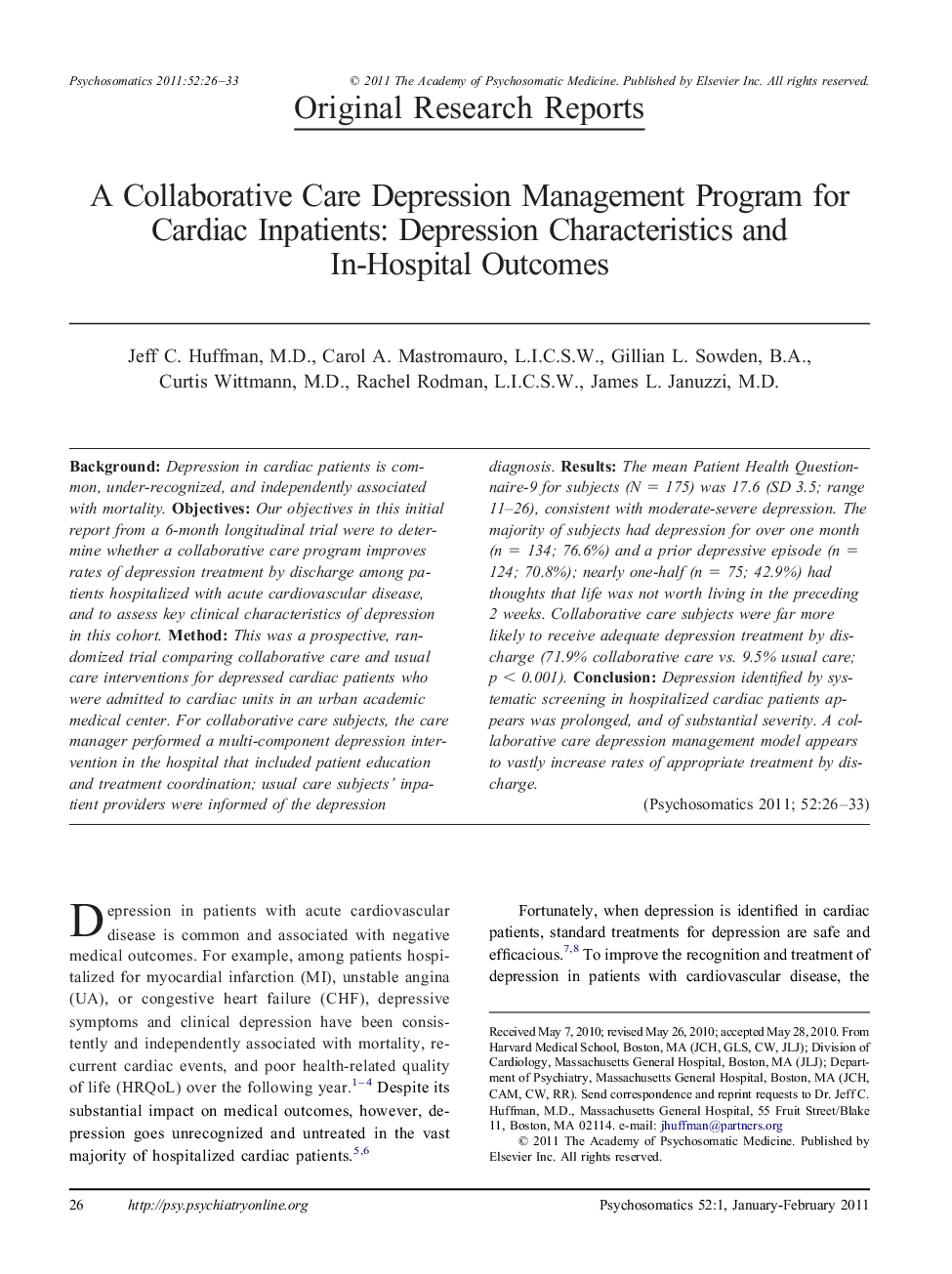| Article ID | Journal | Published Year | Pages | File Type |
|---|---|---|---|---|
| 339190 | Psychosomatics | 2011 | 8 Pages |
BackgroundDepression in cardiac patients is common, under-recognized, and independently associated with mortality.ObjectivesOur objectives in this initial report from a 6-month longitudinal trial were to determine whether a collaborative care program improves rates of depression treatment by discharge among patients hospitalized with acute cardiovascular disease, and to assess key clinical characteristics of depression in this cohort.MethodThis was a prospective, randomized trial comparing collaborative care and usual care interventions for depressed cardiac patients who were admitted to cardiac units in an urban academic medical center. For collaborative care subjects, the care manager performed a multi-component depression intervention in the hospital that included patient education and treatment coordination; usual care subjects' inpatient providers were informed of the depression diagnosis.ResultsThe mean Patient Health Questionnaire-9 for subjects (N = 175) was 17.6 (SD 3.5; range 11–26), consistent with moderate-severe depression. The majority of subjects had depression for over one month (n = 134; 76.6%) and a prior depressive episode (n = 124; 70.8%); nearly one-half (n = 75; 42.9%) had thoughts that life was not worth living in the preceding 2 weeks. Collaborative care subjects were far more likely to receive adequate depression treatment by discharge (71.9% collaborative care vs. 9.5% usual care; p < 0.001).ConclusionDepression identified by systematic screening in hospitalized cardiac patients appears was prolonged, and of substantial severity. A collaborative care depression management model appears to vastly increase rates of appropriate treatment by discharge.
